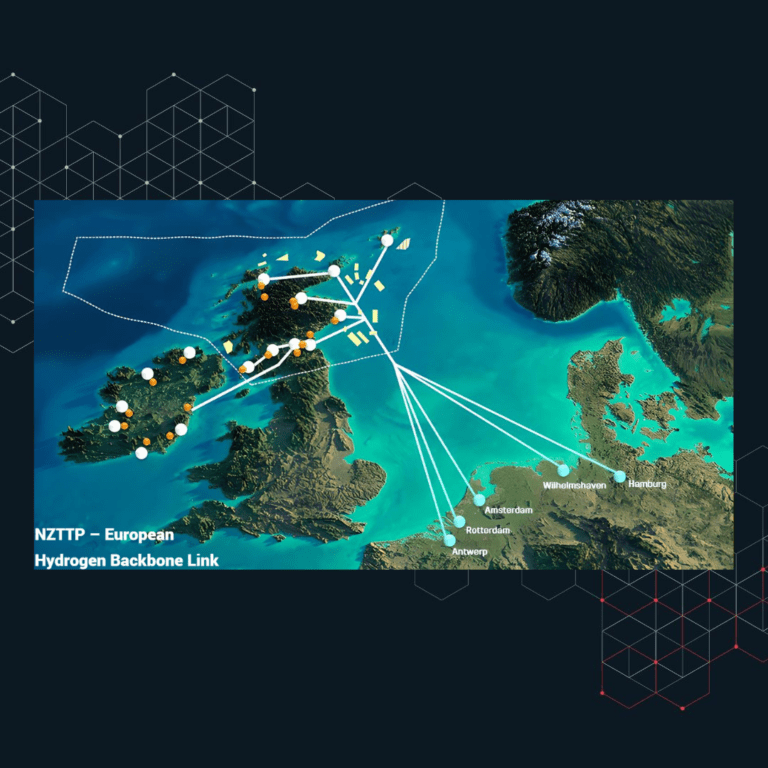Navigating Corrosion in CCUS and AMPP 21532: A Guided Approach to the new Guideline for Materials Selection and Corrosion Control for CO₂ Transport and Injection
Navigating CCUS Corrosion: AMPP’s Guide 21532
AMPP (formerly known as NACE) has recently released a comprehensive guide on CCUS corrosion –Guide 21532: Guideline for Materials Selection and Corrosion Control for CO₂ Transport and Injection. Compiled with the collaborative efforts of corrosion experts from various fields, this guide is an embodiment of the current best industry and academic practices to select a materials philosophy and manage corrosion in Carbon Capture, Usage and Storage (CCUS). It gives a broad overview of a methodology proposed by AMPP Standard Committee 20 – Internal Corrosion, backed by extensive academic research and industry discussions.
A Six-Step Approach to CCUS Corrosion Control
The document suggests a six-step process, comprising four design steps and two operating steps, aimed to effectively manage CCUS corrosion:
- Establish a CO₂ specification, operating envelope, and upset conditions.
- Carry out a failure mode and effect analysis (FMEA) as per IEC 60812.
- Identify credible risks with the help of standards such as ISO 27913: Carbon dioxide capture, transportation, and geological storage.
- Produce a materials selection referencing API 584: Integrity Operating Windows.
- Implement monitoring during operation.
- Undertake necessary adjustments in response to upsets.
The Effect of Impurities and the Need for Expertise
The guide emphasizes the potential effects of impurities, derived from academic literature, and underlines that managing changes following an upset could warrant alterations to the CO₂ specification or operating envelopes. Understanding the interaction of changes to the impurity mix and operating envelope is vital to best navigate these actions, and the counsel of a corrosion expert is recommended.
To confidently handle CCUS transport and injection, stakeholders are advised to follow the AMPP Guide and seek recommended expertise, such as phase behaviour experts and materials and corrosion specialists. Guidance is provided for common corrosion mechanisms, including potential acid formation, and material recommendations for different sections of the system. A deep understanding is required to identify the credible risks and damage mechanisms for a full FMEA.
OGC Energy: Your Partner in CCUS Corrosion Management
At OGC Energy, our approach aligns closely with the guide’s recommendations, and we have proven it successful in projects like Carbfix, Porthos, and various CCUS developments in North America. With a track record of over 50 MTPA CO₂ sequestered in projects worldwide, we stand at the forefront of materials selection and corrosion management in CCUS.
We can guide you on CO₂ specifications, help determine the operating window and transient risks of your system, and work alongside you to develop detailed FMEA guidance. Collaborating with stakeholders, we create a comprehensive risk matrix, dictated by credible damage mechanisms and mitigations. This approach enables us to develop a materials selection guideline tailored to any transport or injection project, effectively communicating design limits and aligning with your priorities.
More than Capability: OGC Energy’s Excellence in CCUS Corrosion Management
We go beyond being capable – at OGC Energy, we excel in navigating CO₂ specifications and operating windows while assessing transient risks for your system. Our deep understanding of FMEA enables us to tailor an all-encompassing risk matrix for your project, predicting every potential damage mechanism and designing strategic mitigation plans.
Our Alliance and Collaborative Approach
Our strategic alliance with Gas Liquids Engineering strengthens our holistic approach to every project. We don’t merely interpret the AMPP 21532 guidelines; we bring our vast industry knowledge and experience to all our collaborations. Our committed team of materials and corrosion specialists work closely with you, tailoring our services to match your project requirements and delivering a comprehensive materials and corrosion management plan.
Embarking on a Sustainable Future with OGC Energy
In a future where carbon capture, utilization, and storage (CCUS) plays a pivotal role in mitigating climate change, it’s time to join hands and chart the path to success together. The journey towards a sustainable future commences today, not tomorrow.
Secure Your CCUS Project’s Success with OGC Energy
Don’t hesitate! Contact OGC Energy now and discover how we can assist your organization in navigating these challenges and amplifying the success of your CCUS project. Our team of experts is poised to tailor solutions to your specific needs. Contact us today and ensure the success of your CCUS project in tackling the crucial issue of corrosion. Together, we can make your project not just a success, but a benchmark in CCUS corrosion management.
Contact us today!



